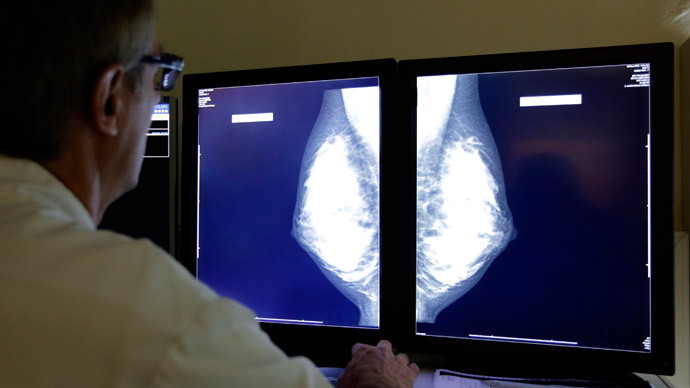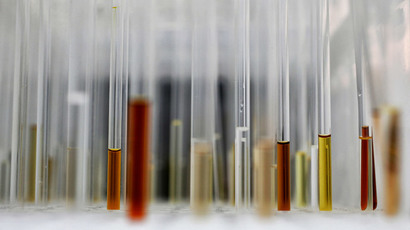'Revolutionary' single-dose breast cancer therapy approved for NHS use

Britain's health watchdog has given the green light for an innovative one-dose breast cancer treatment to be provided by the NHS. It gives thousands of patients hope for a fast recovery by potentially avoiding traditional weeks-long radiotherapy sessions.
‘Intrabeam’ radiotherapy (IORT) is a single shot of radiation inside the breast during surgery, which may replace traditional treatment for patients with early breast cancer – when the tumor is in the breast and has not spread.
The National Institute for Health and Care Excellence (NICE) has approved the groundbreaking technique for Britain's National Health System (NHS) to use.
Breast cancer patients must currently undergo surgery to remove a tumor, then take numerous trips to the hospital for radiotherapy aimed at killing any remaining cancerous cells.
"Regular radiotherapy typically requires numerous doses over a three week period – although some people may receive it for longer – and is performed weeks or months after surgery or chemotherapy,” Professor Carole Longson, director of health technology evaluation at NICE, said.
‘Intrabeam’ radiotherapy, on the contrary, will take for about half an hour. Tests on more than 2,000 people have proved that single-shot radiation treatment is no less effective than conservative radiotherapy.
"Intrabeam is unique in that it is given during surgery, avoiding the need for weeks of follow up appointments and for many women, this is all the treatment they need,” Sally Greenbrook, senior policy officer at Charity Breakthrough Breast Cancer said, commenting to the news.
In its new draft guidelines, which have been put out for consultation, NICE said the treatment would improve the quality of life for patients.
"Whilst current evidence was not extensive, this type of radiotherapy was more convenient for patients and can improve a person's quality of life,” the UK health watchdog said.
Every year, around 41,500 women and 300 men in England are diagnosed with breast cancer. Up to 36,000 (around 86 percent) of them can benefit from the new treatment.
However, there is no long-term data available for IORT, so NICE strongly recommends that the pros and cons be made clear to patients, adding that they should be given all treatment options.
"Because it is still relatively new, it is only right to recommend its use in a carefully controlled way,” Longson said. "This will ensure patients are fully aware of the risks and benefits before choosing which treatment to have and allow doctors to gather more information about the treatment."
“So far only six centers in the UK have used the Intrabeam radiotherapy system to treat early breast cancer,” Longson added.
NICE said that all patients who receive the new treatment should be put on a national register, and experts should review their progress and outcomes.
The consultation runs until August 15, with final guidance expected later this year.
"Whilst this is just an initial decision from NICE, we look forward to their final decision which we very much hope will remain positive," Greenbrook said.














